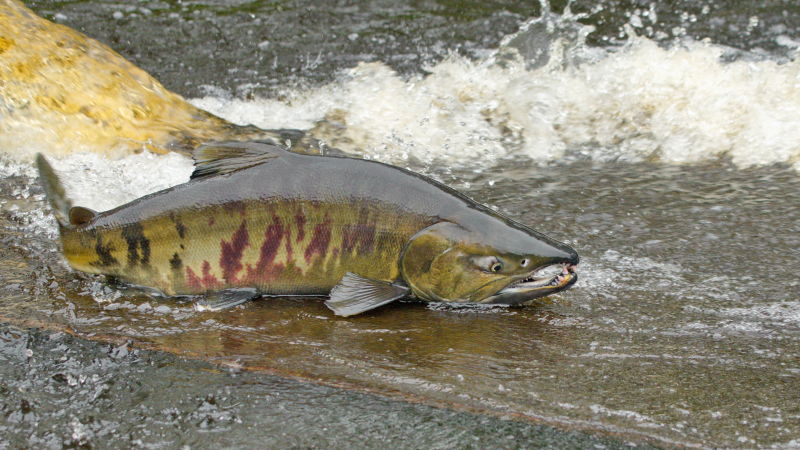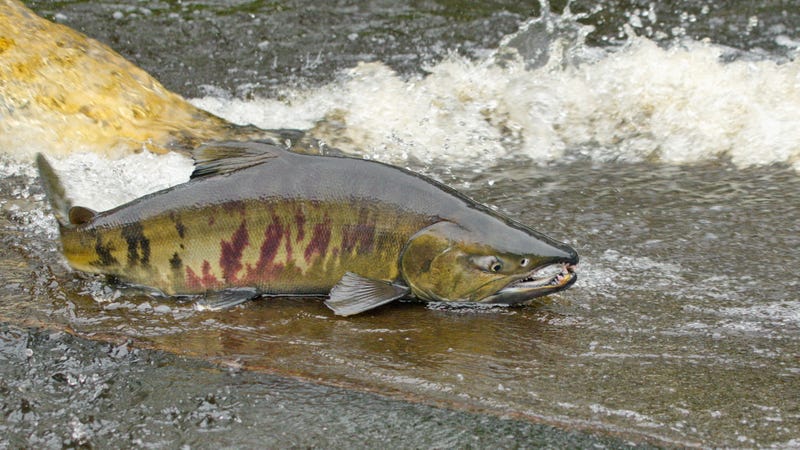Salmon will do whatever it takes to make some babies. They’ll even dart across oncoming traffic, apparently.
Amazing footage captured earlier this week shows some chum salmon near the Skokomish River in Washington state literally crossing the road. Chum salmon usually start spawning in November, using the river to reach streams where eggs can be laid and fertilized. In this age of humans messing with everything, roads have become a path to reach these spawning grounds.
Advertisement
Behold:
This sort of thing now happenseveryyear. The Skokomish River tends to flood from rain, and floodwaters crossing the highway operate as a dangerous shortcut of sorts for salmon that are trying to reach their spawning grounds. It’s possible salmon have been crossing flooded highways for decades, according to Aaron Dufault, a salmon policy analyst with the Washington Department of Fish and Wildlife, who spoke with the Canadian Broadcasting Corporation.
Advertisement
The chum salmon are historically the most abundant of Pacific salmon, but the National Oceanic and Atmospheric Administration lists two chum salmon populations as threatened: one in the state’s Columbia River and another that travels through the Hood Canal, which the Skokomish River feeds into. It’s not clear if these particular road-crossers are part of a threatened group, but their behavior definitely poses a threat to the individuals that get caught up in it. Obviously, this is all unintentional on the part of the fish, which are simply following the water flow, as a Washington Department of Fish and Wildlife post notes.
Most of these fish are hatchery salmon, per Dufault, so any deaths from a fish getting stranded or hit by a car don’t impact the overall population much. “Even if there are wild fish in there, we still get plenty into that river to seed the habitat, so there’s no conservation concern,” he told CBC.
Still, crossing a road barely covered in water requires a lot of energy—energy the salmon could otherwise use for their long trip. It’s a reminder of the way human decisions ultimately impact the animals that were here long before us or our roads or cars. What a wild ride.














